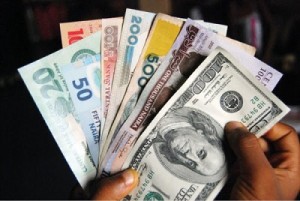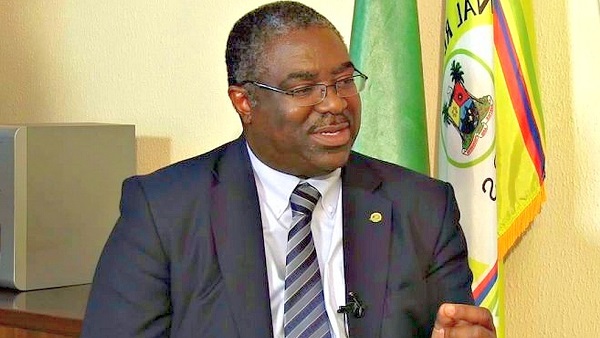CBN sells dollar for PTA, schools fees at N360
 …injects fresh $185m into forex market
…injects fresh $185m into forex market
…declares Thursday Financial Literacy Day
The Central Bank of Nigeria has directed all Deposit Money Banks to provide foreign exchange for customers requesting it for Personal or Business Travel Allowance, and payment of school fees and medicals at a rate of N360 per dollar.
It also directed banks to immediately post the new rate on electronic display boards in the banking halls of their branches, adding that examiners from the CBN would visit banks to ensure the new rates were implemented.
The Acting Director, Corporate Communications, CBN, Mr. Isaac Okoroafor, who confirmed the development, reiterated the apex bank’s directive to the DMBs to process and meet demand for forex by end-users within 24 hours of such application.
In terms of applications for school fees and medical bills, he said these were to be met within 48 hours of such application.
Okorafor explained that the new move was aimed at further easing access of genuine end-users to forex, adding that banks had been prohibited from selling forex meant for invisibles to Bureau De Change operators.
He added that the apex bank had released a total sum of $185m into the foreign exchange market as part of moves to meet the demand of genuine users.
The amount is made up of the sum of $85m for sale to the DMBs at the rate of 357/$1 for onward sale to retail end-users at not more than N360/$1, for invisibles such as the BTA, medicals, and school fees, among others.
He said the balance of $100m was offered to authorised forex dealers in the interbank wholesale window to meet the requests of genuine wholesale customers.
Okorafor said the rates in the interbank window for wholesale transactions would still be determined by activities in the interbank market, adding that all banks had been given directives on the development.
Going forward, he reiterated that all banks would receive amounts commensurate with their demand per week, which would be sold to customers who met usual basic documentary requirements.
He, therefore, urged customers to report any erring bank to the CBN for investigation and appropriate sanction.
…declares Thursday Financial Literacy Day
in celebration of the Global Money Week 2017, the Central Bank of Nigeria has declared March 30, 2017 Financial Literacy Day.
Consequently, the managing directors/chief executive officers and top executives of 29 banks and financial institutions across the nation will visit over 800 schools in 36 states to teach financial literacy curriculum provided by the Junior Achievement Nigeria.
Over 80,000 students are expected to be impacted through the Junior Achievement Nigeria’s curriculum based on this year’s Global Money Week’s “Learn. Save. Earn” theme set to hold worldwide from March 27 to April 2, 2017.
The CBN initiative is managed by the Bankers Committee, which works with Junior Achievement Nigeria to match banks to schools.
“This is the fourth year we are implementing Financial Literacy Day in partnership with Junior Achievement Nigeria and we have seen the program improve and expand each year,” the Chief Executive Officer of Union Bank Plc, Mr. Emeka Emuwa, who is also the Chairman of the CBN’s Bankers Committee Financial Literacy and Public Enlightenment Sub – Committee.
In a statement by the sub-committee, Emuwa was further quoted as saying, “Our ultimate goal is to ensure that every Nigerian student understands financial literacy and is able to make sound financial decisions that will lead to a productive and successful life.”
The Executive Director, Junior Achievement Nigeria, Mrs. Simi Nwogugu, said, “We are grateful for the opportunity to develop the curriculum and implement this initiative with the CBN’s Bankers Committee every year.”
She added, “The goal of Global Money Week is to teach children and youth about money, saving, creating livelihoods, gaining employment and becoming an entrepreneur through interactive and fun activities. This aligns with the three pillars upon which Junior Achievement’s programmes are built: financial literacy, work readiness, and entrepreneurship.”







